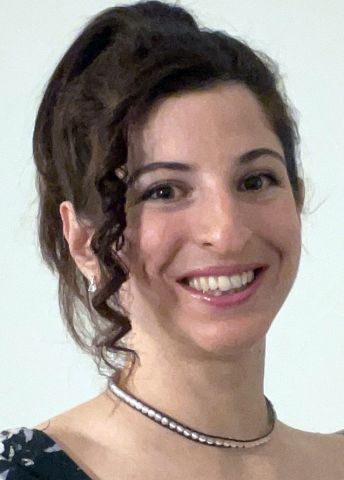
Program for mathematics 2025
Grant to a post-doctoral position abroad
Doctoral student Danai Deligeorgaki
KTH Royal Institute for Technology
Postdoc at Max Planck Institute for Molecular Cell Biology and Genetics, Germany
Grant to a post-doctoral position abroad
Doctoral student Danai Deligeorgaki
KTH Royal Institute for Technology
Postdoc at Max Planck Institute for Molecular Cell Biology and Genetics, Germany
Tricky relationships uncovered through combinatorics
Danai Deligeorgaki will receive her doctoral degree in mathematics from KTH Royal Institute of Technology in 2025. Thanks to a grant from the Knut and Alice Wallenberg Foundation, she will hold a postdoctoral position with Professor Heather Harrington and Professor Aida Maraj, Max Planck Institute for Molecular Cell Biology and Genetics (MPI-CBG), Dresden, Germany.
The main focus of this research project is the combinatorics of statistical models that capture relationships between discrete random variables, with applications to algebraic statistics. A simple example examines whether the decision to return a product depends on whether it was bought online or in a physical store based on observed data. The combinatorics of the statistical model can then be used to calculate the probability that the data comes from the model. If this probability is small, it suggests that the model does not adequately explain the data.
These hypothesis tests are considerably more complicated with a greater number of variables, leading to many more contingency tables. This requires the development of advanced statistical models for probability distributions, which utilise methods from algebra, combinatorics and geometry. Some of the statistical models’ properties will be studied by examining the symmetries of geometric objects, polytopes, which are high-dimensional polygons.
Innovative statistical models will contribute to the development of more efficient methods for analysing and understanding complex data sets. There are countless applications, ranging from biology and medicine to data processing at large internet companies as well as mathematical phylogenetics, which is one of the areas of interest at the host institution in Dresden.